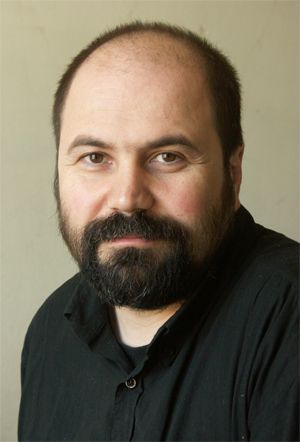
Zinovy Margolin graduated from the Belarusian State Academy of Arts. He worked as Principal Designer of the Youth Theatre of Belarus in Minsk from 1988 to 1998. From 1998 to 2000, Margolin worked as Principal Designer of the St. Petersburg Chamber Opera Company. He designed productions for the Chekhov Moscow Art Theatre, the Vakhtangov Theatre, the Moscow Pushkin Drama Theatre, the Tovstonogov Bolshoi Drama Theatre, the Central Academic Theatre of the Russian Army, the Janka Kupala National Theatre in Minsk and others.
Margolin helped design productions for the Bolshoi Theatre of Russia (Die Fledermaus, Prince Igor, Le nozze di Figaro), the Stanislavski and Nemirovich-Danchenko Moscow Academic Music Theatre (L'italiana in Algeri), the Theatre Basel (The Gambler), the Mikhailovsky Theatre, the Lithuanian National Opera and Ballet Theatre, and the Royal Swedish Opera (Eugene Onegin). Frequently collaborates with stage director Vasily Barkhatov.
At the Mariinsky Theatre, Margolin worked on designs for The Nose, The Tsar’s Bride (2004), Tristan und Isolde (2005), The Golden Age (2006), The Gambler, Jenůfa, Benvenuto Cellini, Otello (2007), The Brothers Karamazov (2008), Dead Souls, Les Contes d'Hoffmann (2011), and Rusalka (2013).
Margolin was a recipient of the Silver Medal at the 1995 Prague Quadrennial for his set designs in Le Cheval évanoui production at the Central Academic Theatre of the Russian Army. He took part in the Our Chekhov: Twenty Years Later exhibition which took The Golden Triga prize at 2007 Prague Quadrennial. The designer’s works for musical theatres have been nominated for a Golden Mask award many times. He won the award for his designs in Lady Macbeth of Mtsensk at the Rostov Musical Theatre (2005), Jenůfa and Dead Souls at the Mariinsky Theatre (2008, 2012), and Les Parapluies de Cherbourg at the Karambol Theatre (2010). Recipient of such Russian theatre awards as The Seagull (2007), Crystal Turandot (2008), Golden Sofit (for set designs in The Nose in 2004 and for set designs in Les Parapluies de Cherbourg in 2010), and the Oleg Tabakov Prize (2009).